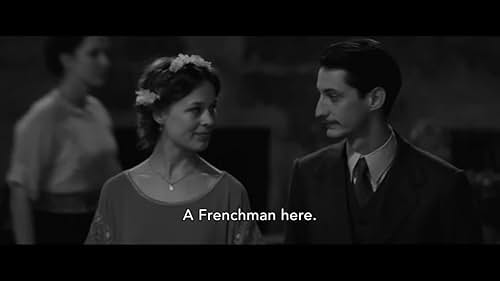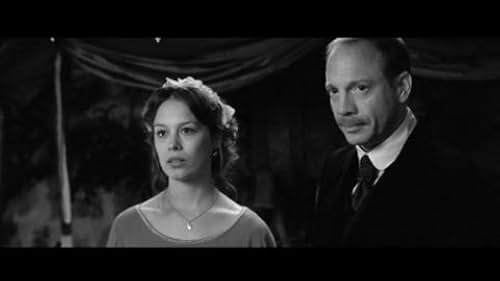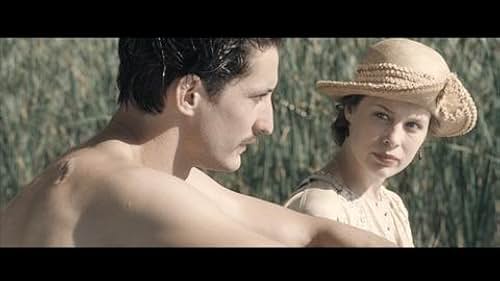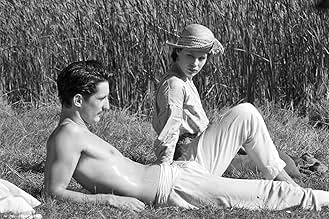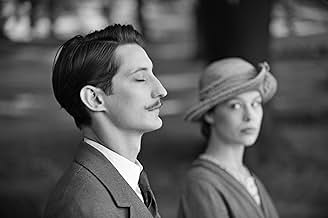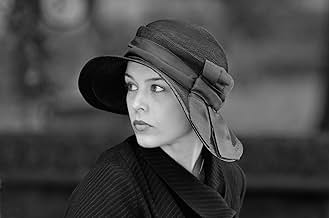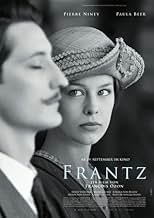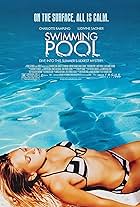VALUTAZIONE IMDb
7,5/10
17.805
LA TUA VALUTAZIONE
All'indomani della prima guerra mondiale, una giovane tedesca che soffre per la morte del suo fidanzato in Francia incontra un misterioso francese che visita la tomba del fidanzato per depor... Leggi tuttoAll'indomani della prima guerra mondiale, una giovane tedesca che soffre per la morte del suo fidanzato in Francia incontra un misterioso francese che visita la tomba del fidanzato per deporre fiori.All'indomani della prima guerra mondiale, una giovane tedesca che soffre per la morte del suo fidanzato in Francia incontra un misterioso francese che visita la tomba del fidanzato per deporre fiori.
- Premi
- 6 vittorie e 36 candidature
Trama
Lo sapevi?
- QuizActor Pierre Niney was not a German speaker, so his co-star Paula Beer taped his lines in German and he learned them by ear, according to director François Ozon.
- BlooperA train seen crossing overhead is clearly powered by an American-made steam locomotive, and on the tender directly following it, the logo shape is that of the Chicago & North Western Railroad, which obviously didn't operate in Europe.
- ConnessioniReferenced in Honest Trailers: Jurassic Park 3 (2018)
- Colonne sonoreUne amitié
Composed & Conducted By Philippe Rombi
Performed by Orchestre Symphonique Bel'Arte
(p) 2016 Cristal Records
Label BORIGINAL - Distribution Sony
Recensione in evidenza
Nations reconcile after war but it is only people who can grant forgiveness. For many, it is an impossible grant that leaves wounds unhealed. This theme dominates the Franco-German film Frantz (2017), a psychological drama about a former soldier's personal quest for forgiveness. Filmed mostly in black and white, it is a poetically beautiful essay about guilt, lies, and tragic loss, set in the between-wars era.
The storyline is shaped by deep grief and national hatreds. In a small German village, Anna (Paula Beer) is grieving the death of her fiancé Frantz who was killed fighting in France. She visits his gravesite daily and one day finds that someone else has left flowers on the grave. A few days later she finds a stranger standing solemnly at the headstone and introduces herself to a brooding Frenchman called Adrien (Pierre Niney). They are soon in conversation and Anna is shocked to hear that Adrien had spent time with Frantz in Paris, sharing a love of music, art, and good times. Anna introduces Adrien to Frantz's parents who bitterly blame all French people for their son's death. As the parents hear Adrien share his grief and his memories of Frantz, a bond begins to form between all of them, at first reluctantly then warmly. But the mysterious Adrien is harbouring a tragic secret. Eventually he breaks down and confesses to Anna with whom a romantic attachment has developed. She immediately shuns him and he returns to Paris. Time elapses and she cannot forget him. Urged by the parents, she goes to Paris to find Adrien where she must confront a new loss and learn about forgiveness.
For audiences expecting an action-driven narrative, there little on offer in this film. The story moves forward in sombre but exquisite monochrome and often tense dialogue that is punctuated by a few scenes in colour as respite from melancholy. The performances of its four main roles are laden with emotion but stops short of melodrama. The principals Paula Beer and Pierre Niney give finely nuanced performances evoking the behavioural norms of the era. All performances are high-wire acts of emotion and dramatic tension: the pain on the parent's faces when they hear stories of their son is palpable and the tense suppression of Adrien's dark secret is electric. Anna's struggle between her loyalty to the cherished memory of Frantz and the possibility of new love is mirrored in the Franco-German struggles with blame, guilt, grief, and hope. As the relationship between Anna and Adrien strengthens there are several lyrical scenes of languid days enjoyed at the side of a pond that are composed like painting masterpieces and emblematic of the artistry brought to the making of this film.
Frantz is multi-layered with intense emotion that is explored at the personal and national levels. Truth is always the first victim of war and where truth fails, lies, promises and secrets take over. Frantz can rightly be described as an art-house feminist film. By taking Anna's viewpoint it encompasses universal themes of agency over victimhood that empower her to move on in her life.
The storyline is shaped by deep grief and national hatreds. In a small German village, Anna (Paula Beer) is grieving the death of her fiancé Frantz who was killed fighting in France. She visits his gravesite daily and one day finds that someone else has left flowers on the grave. A few days later she finds a stranger standing solemnly at the headstone and introduces herself to a brooding Frenchman called Adrien (Pierre Niney). They are soon in conversation and Anna is shocked to hear that Adrien had spent time with Frantz in Paris, sharing a love of music, art, and good times. Anna introduces Adrien to Frantz's parents who bitterly blame all French people for their son's death. As the parents hear Adrien share his grief and his memories of Frantz, a bond begins to form between all of them, at first reluctantly then warmly. But the mysterious Adrien is harbouring a tragic secret. Eventually he breaks down and confesses to Anna with whom a romantic attachment has developed. She immediately shuns him and he returns to Paris. Time elapses and she cannot forget him. Urged by the parents, she goes to Paris to find Adrien where she must confront a new loss and learn about forgiveness.
For audiences expecting an action-driven narrative, there little on offer in this film. The story moves forward in sombre but exquisite monochrome and often tense dialogue that is punctuated by a few scenes in colour as respite from melancholy. The performances of its four main roles are laden with emotion but stops short of melodrama. The principals Paula Beer and Pierre Niney give finely nuanced performances evoking the behavioural norms of the era. All performances are high-wire acts of emotion and dramatic tension: the pain on the parent's faces when they hear stories of their son is palpable and the tense suppression of Adrien's dark secret is electric. Anna's struggle between her loyalty to the cherished memory of Frantz and the possibility of new love is mirrored in the Franco-German struggles with blame, guilt, grief, and hope. As the relationship between Anna and Adrien strengthens there are several lyrical scenes of languid days enjoyed at the side of a pond that are composed like painting masterpieces and emblematic of the artistry brought to the making of this film.
Frantz is multi-layered with intense emotion that is explored at the personal and national levels. Truth is always the first victim of war and where truth fails, lies, promises and secrets take over. Frantz can rightly be described as an art-house feminist film. By taking Anna's viewpoint it encompasses universal themes of agency over victimhood that empower her to move on in her life.
- CineMuseFilms
- 3 mag 2017
- Permalink
I più visti
Accedi per valutare e creare un elenco di titoli salvati per ottenere consigli personalizzati
- How long is Frantz?Powered by Alexa
Dettagli
- Data di uscita
- Paesi di origine
- Siti ufficiali
- Lingue
- Celebre anche come
- Frantz: El hombre que amé
- Luoghi delle riprese
- Quedlinburg, Saxony-Anhalt, Germania(streets)
- Aziende produttrici
- Vedi altri crediti dell’azienda su IMDbPro
Botteghino
- Budget
- 9.474.971 € (previsto)
- Lordo Stati Uniti e Canada
- 880.883 USD
- Fine settimana di apertura Stati Uniti e Canada
- 18.745 USD
- 19 mar 2017
- Lordo in tutto il mondo
- 7.478.354 USD
- Tempo di esecuzione1 ora 53 minuti
- Colore
- Mix di suoni
- Proporzioni
- 2.39 : 1
Contribuisci a questa pagina
Suggerisci una modifica o aggiungi i contenuti mancanti


